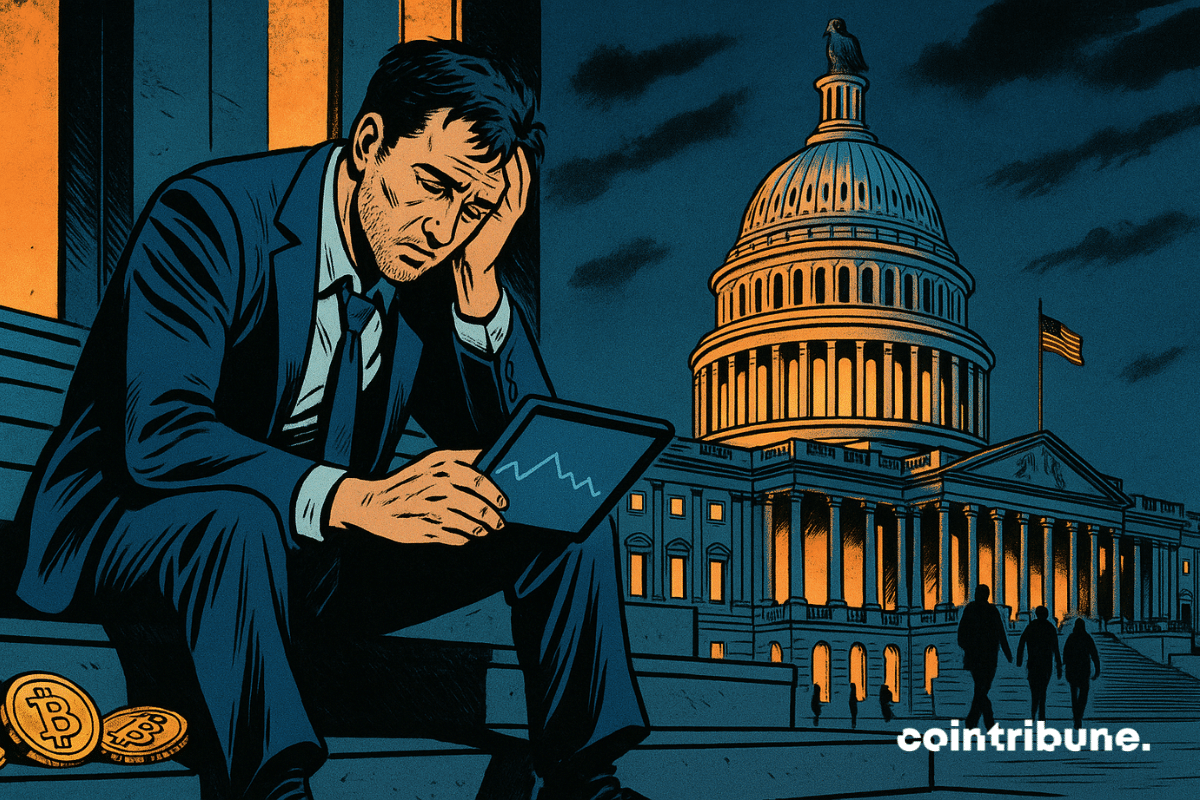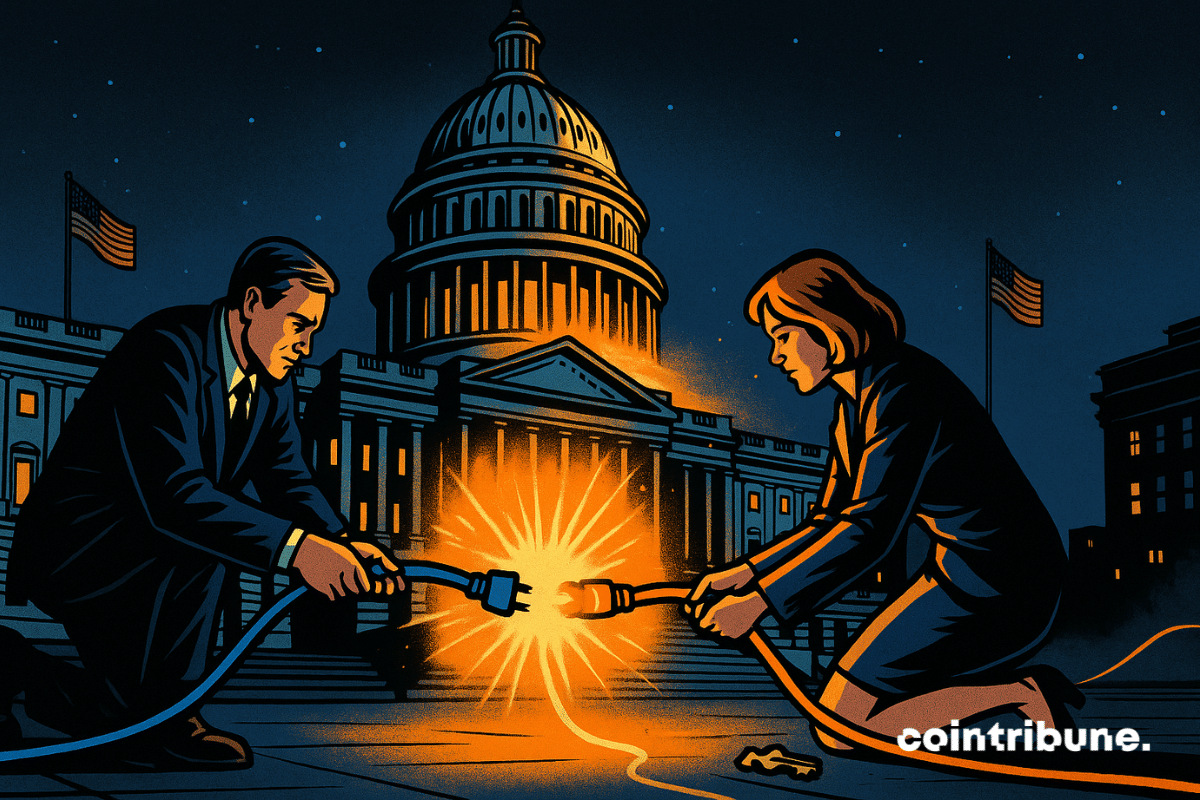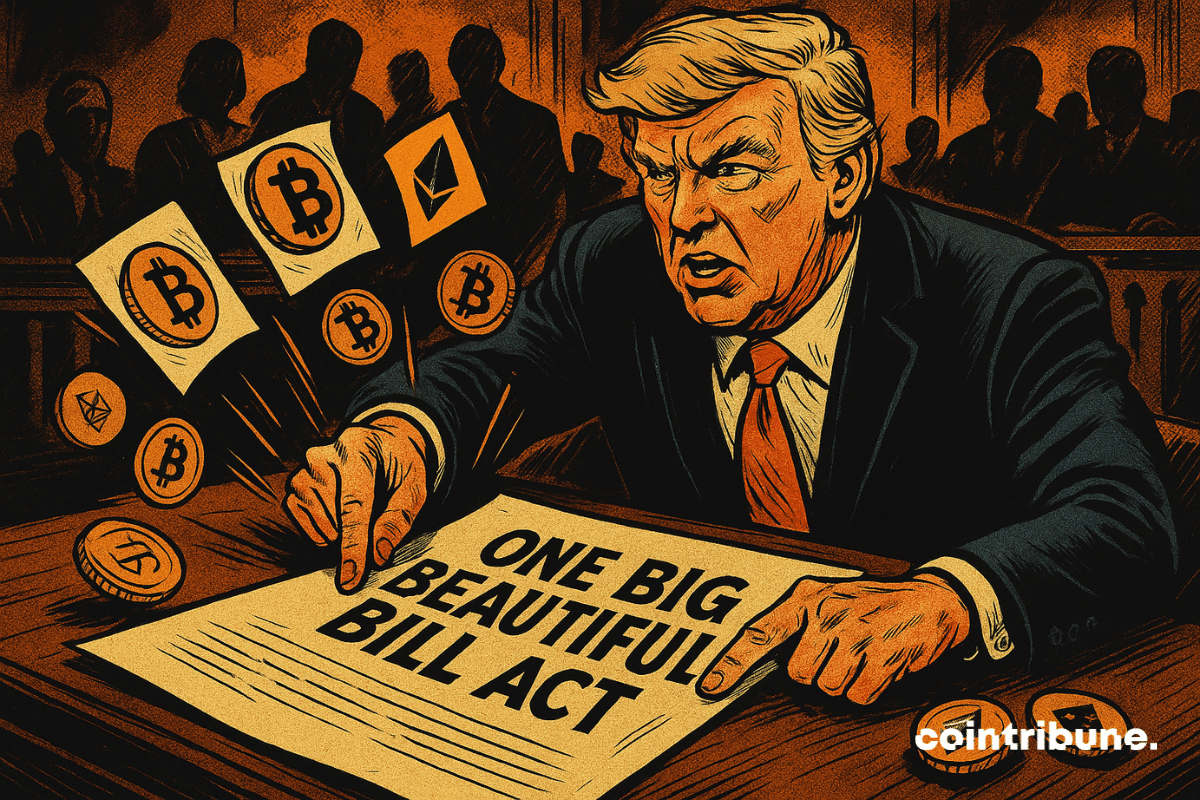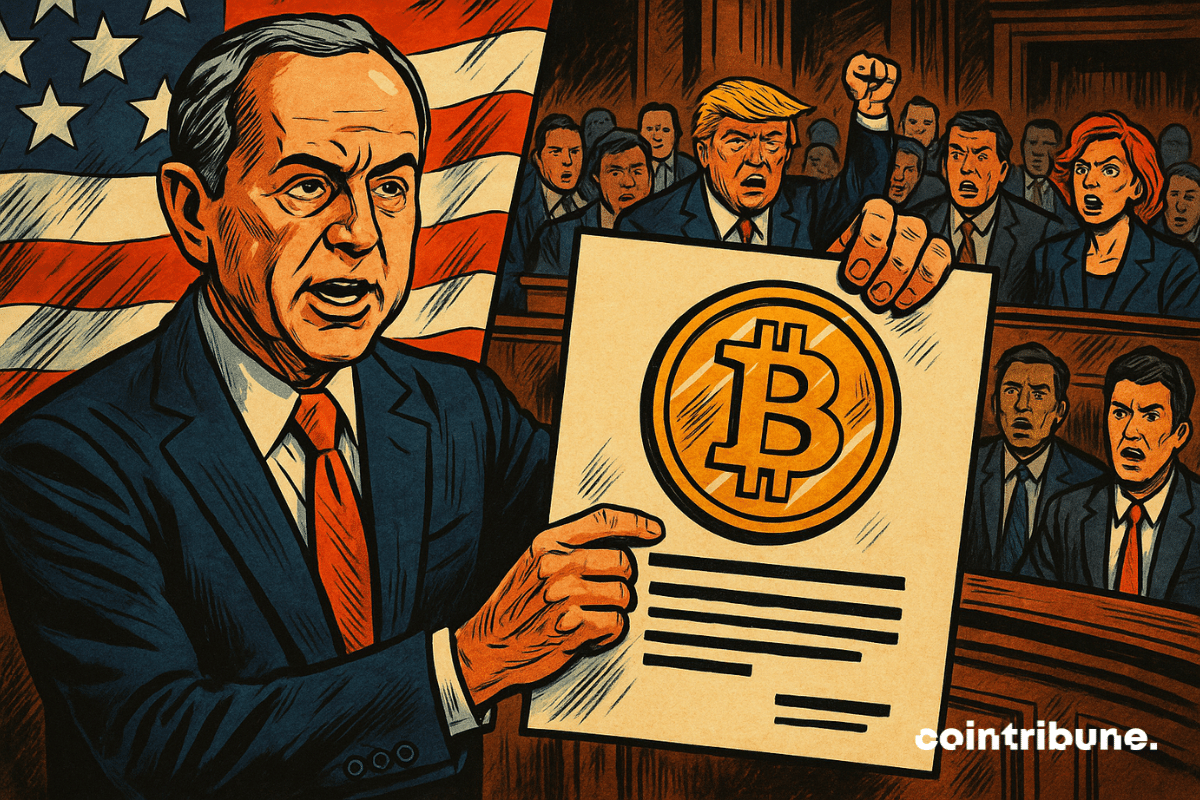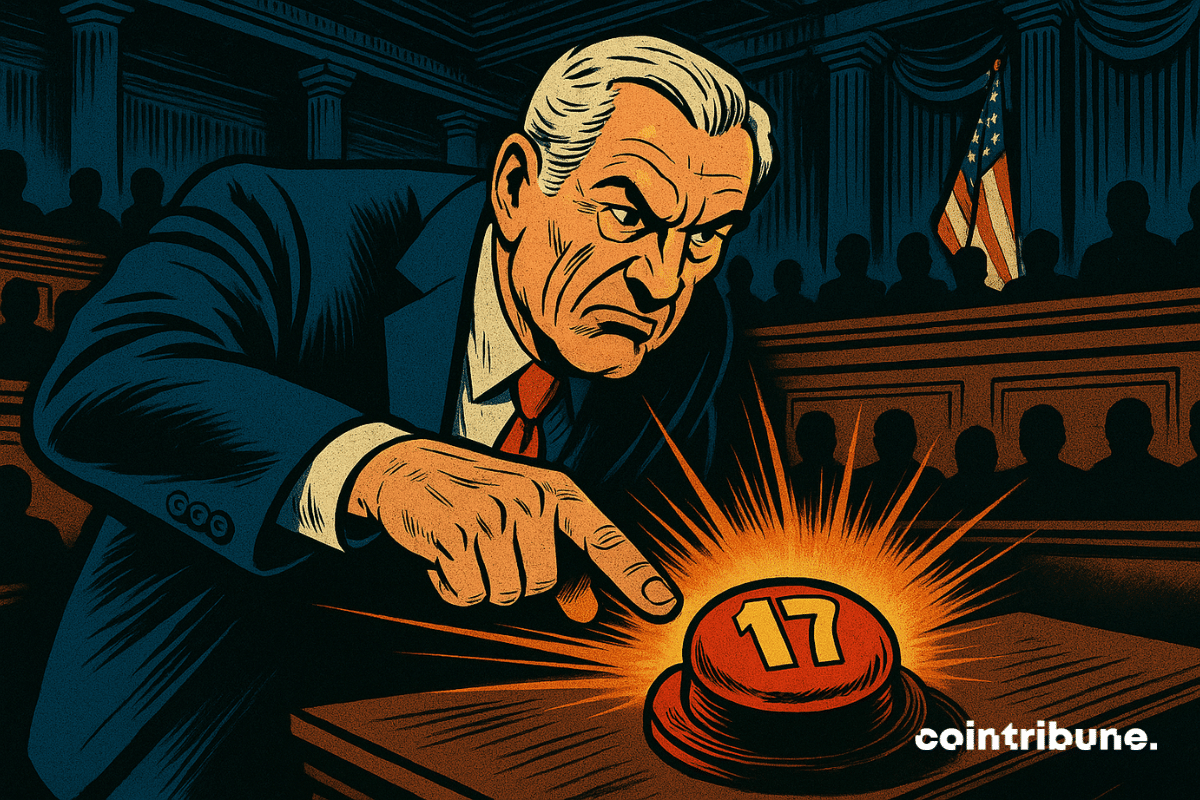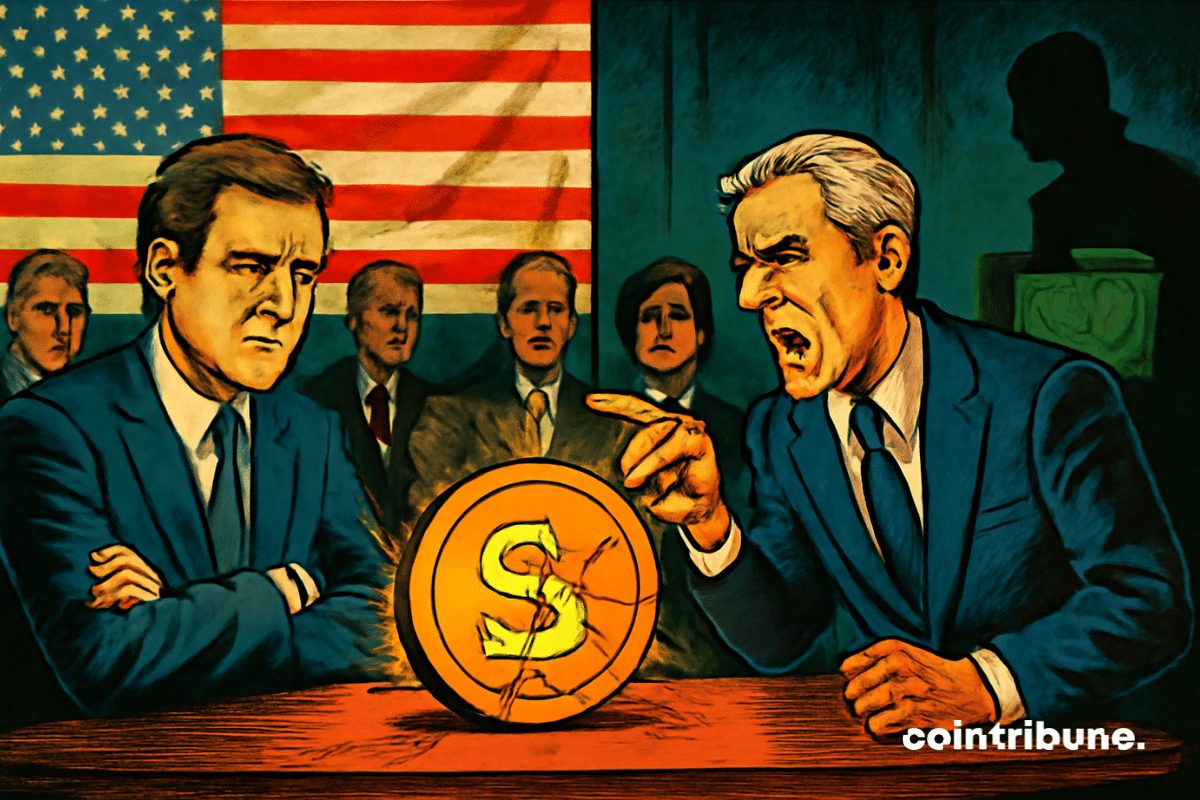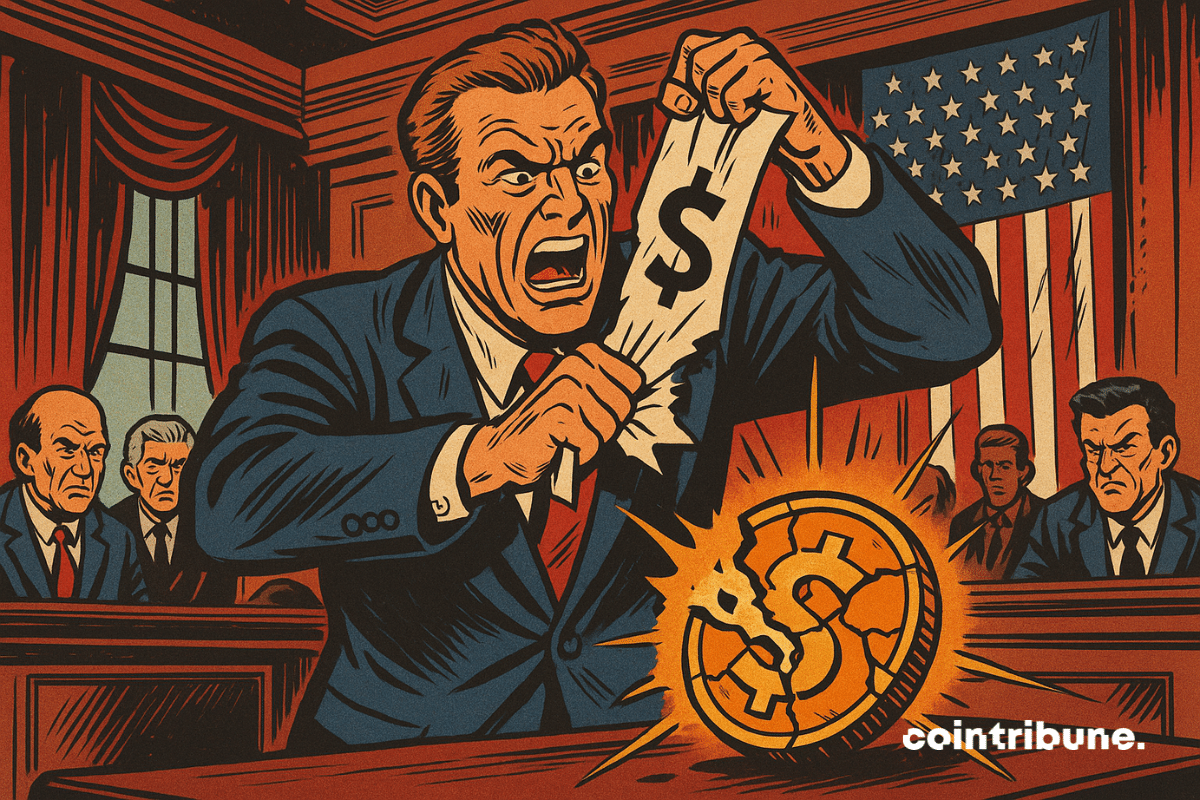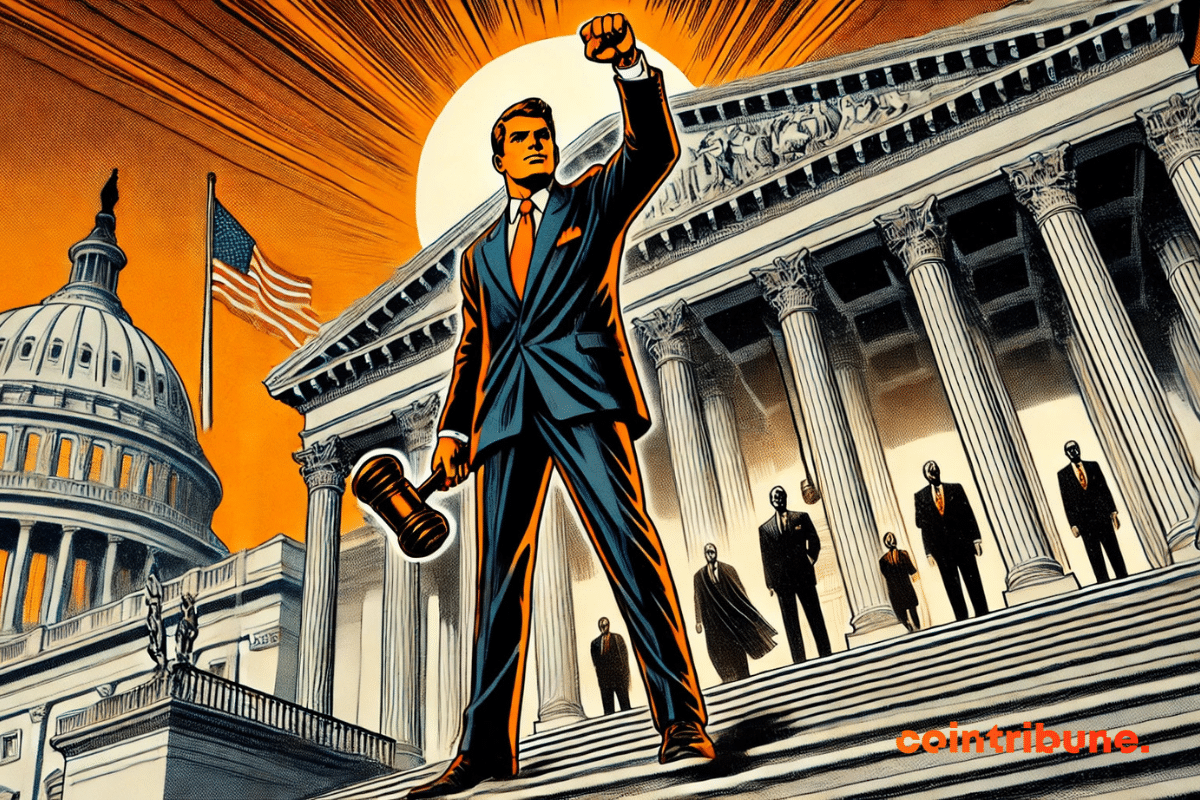After years of regulatory uncertainty, the United States is about to reach a strategic milestone. The Senate will review the CLARITY Act in January 2026, a structuring bill aimed at clarifying the legal status of cryptocurrencies. The announcement, made by David Sacks, special advisor at the White House, finally places crypto regulation at the heart of the parliamentary debate. For a sector seeking stability, this step could sustainably redefine the rules of the game.
Senate
The end of the longest shutdown in US history could have marked a turning point for the crypto market. Unlike in 2019, the expected euphoria did not materialize. Bitcoin is retreating, investors are doubtful. Why doesn't this political restart trigger the hoped-for explosion in prices? Between regulatory paralysis, blurred economic signals, and political uncertainties, the market struggles to find new momentum. This complex situation weakens investors' expectations.
After more than 40 days of paralysis, Washington is beginning to emerge from the crisis. On Monday evening, the Senate voted on a temporary funding law aimed at reopening federal agencies, including the SEC, essential to the crypto ecosystem. If the House approves the text this Wednesday, the government could resume its activities by the end of the week. This outcome is closely watched by the markets, as several key cases for the blockchain industry are awaiting revival.
While the United States struggles to align on crypto regulation, the Senate breaks the deadlock. The Agriculture Committee has just unveiled an ambitious bill aimed at clarifying the roles of regulators, CFTC and SEC, and laying the foundations for a coherent legal framework. Led by Senators Boozman and Booker, the text also addresses key concepts such as DeFi, DAOs, and blockchain. This is a first step towards more readable regulation.
Lawmakers from the U.S. Senate and House of Representatives recently met with crypto industry stakeholders to deliberate on key market structures and codify laws for establishing a strategic Bitcoin reserve.
A federal initiative to incorporate crypto holdings into mortgage applications is facing growing resistance, as lawmakers warn of potential shocks to the housing finance system.
Trump exults, Warren rises up, Lummis screams into the wilderness... The Senate votes, cuts through, carefully avoids crypto, and signs a XXL law, as silent as it is deafening for digital miners.
Trump rewards holders of his memecoin with a private dinner. Immediate reaction: Adam Schiff, a Democratic senator, draws up a law to regulate the use of cryptocurrency by political officials. A confrontation that mixes digital assets, conflicts of interest, and electoral calculations.
As bitcoin continues to divide institutions, Texas catches everyone off guard. In a gesture as symbolic as it is strategic, the state adopts a public Bitcoin reserve, boldly declaring its ambition to play a central role in tomorrow's digital economy. An initiative that challenges the traditional codes of public finance management and could very well set a precedent.
As the crypto market desperately seeks direction, the U.S. Senate is set to lay the groundwork for a legal framework for stablecoins. The vote on June 17 could very well reshuffle the deck for both institutions and digital giants.
The United States is preparing to regulate stablecoins. A key vote on the GENIUS Act could transform the crypto industry forever.
As cryptocurrency gradually reshapes the lines of global financial power, the American Democratic Party is experiencing an unprecedented political storm. The Senate vote on May 19 for the GENIUS Act – a regulatory framework for stablecoins – has fractured the already fragile unity of the Democrats. By agreeing to move forward with the legislation, sixteen senators chose to navigate murky waters, risking the alienation of their own electorate.
The U.S. Senate rejected the GENIUS Act bill yesterday, which aimed to regulate stablecoins. With a vote of 48 against 49, far from the 60 votes needed, this bipartisan legislation faced unexpected opposition from Democrats, jeopardizing the regulatory future of dollar-backed cryptos. But what are the real reasons behind this legislative failure?
As the American economy wobbles, Donald Trump secures a strategic victory in the Senate with the unlocking of a controversial budget. Behind this success lies a political clash with global repercussions. For both investors and crypto players, this vote opens an uncertain sequence that could redefine financial balances and impact the trajectory of markets.
The foreign exchange market is abuzz. While the American Federal Reserve maintains a cautious stance on interest rates, the dollar is sinking against major currencies. In a context of economic uncertainty, between rising inflation and trade tensions exacerbated by Donald Trump, investors and analysts are closely monitoring every statement from the Fed chair, Jerome Powell. His testimony before the Senate confirmed that the monetary institution would not hasten interest rate cuts, despite market expectations. Meanwhile, the announcement of new protectionist measures by the U.S. executive fuels fears of a tightening global economic climate.
Once is not a habit, the French government once again shows its blatant distrust towards bitcoin.
The Arizona Senate takes a historic step towards institutional adoption of cryptocurrencies with the advancement of a bill allowing the state to invest up to 10% of its public funds in bitcoin. This initiative could trigger a wave of similar adoption in other U.S. states.

